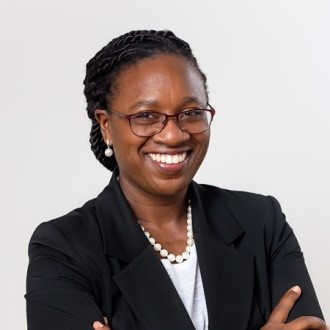The indifference, reluctance and sometimes hostility which hitherto characterised responses by a vast majority of potential clients to investment advice has gradually given way to more enthusiasm and receptiveness, Chief Marketing Officer (CMO) for the Databank Group, Gillian Hammah has said.
The resulting shift from predominantly investing in fixed-income instruments to more guidance-based, tailor-made products, she notes, has been brought about by the shock and disruptions of COVID-19.
According to her, while the number of potential investors who are actively seeking guidance has only grown marginally, there is now a generally more receptive posture from persons engaged on the subject.
“Now, there is a greater appreciation for the things we have been saying for years … the receptiveness to advice is now very high in Ghana; it has always been traditionally low. People typically go for Fixed Deposits and Treasury bills, which are not advice-based products, as guaranteed returns has been the primary driver of their investment decisions. Now, they are willing to ask us what we think and what they should do,” she told the B&FT in an exclusive interview.
She added that the development coincided with reopening of the economy – particularly from the third quarter of last year, as the reality of the new normal and ensuing need for adjustments set in.
Growth
The Databank CMO revealed that the shift to virtual events, as result of the pandemic, has yielded many benefits.
Describing it as the pandemic’s ‘silver-lining’, she stated that the number of participants at these virtual events has grown by more than 300% in less than a year; from a maximum of 200 participants to a minimum of 800 on average. “The sessions are really engaging, and we never have enough time to get through all the questions they have. We are recording an increase in participants from outside Ghana as well,” she said.
She added that Databank has been able to surmount the challenge of translating online engagements to actual transactions by using innovative methods as well as its large number of outlets and digital channels – and credited her outfit’s position as the leading investment bank in the country as being responsible for the performance.
Ms. Hammah further disclosed that on the back of these increased engagements, the bank has seen inflows from transactions rise by more than 40% in the second of half of 2020 – a trend she says has continued into the new year.
Emergency Fund
Using the sudden arrival of COVID-19 and its adverse socio-economic effects as an example, Ms. Hammah argued that there has never been a more critical time for active investment into an emergency fund.
She therefore advised that persons who consider their disposable income as insufficient to make tangible investments should endeavour to set aside a portion of their inflows, stating that the principle and culture of investing is of greater significance.
“One of the biggest takeaways from the pandemic is that everyone should have an emergency fund. No matter how little their disposable income is, they should find a way to set some aside; because that is what will keep you when times get hard. What we saw, especially during the lockdown, was people going to their churches, looking for handouts…unable to pay their loans among other things.
“This happened mostly because they had no back-up. Even if you have disposable income of GH¢10 a month, put it away in an emergency fund. We can always talk about retirement, but when disposable income is limited the primary focus should be on having an emergency fund,” she stressed.










